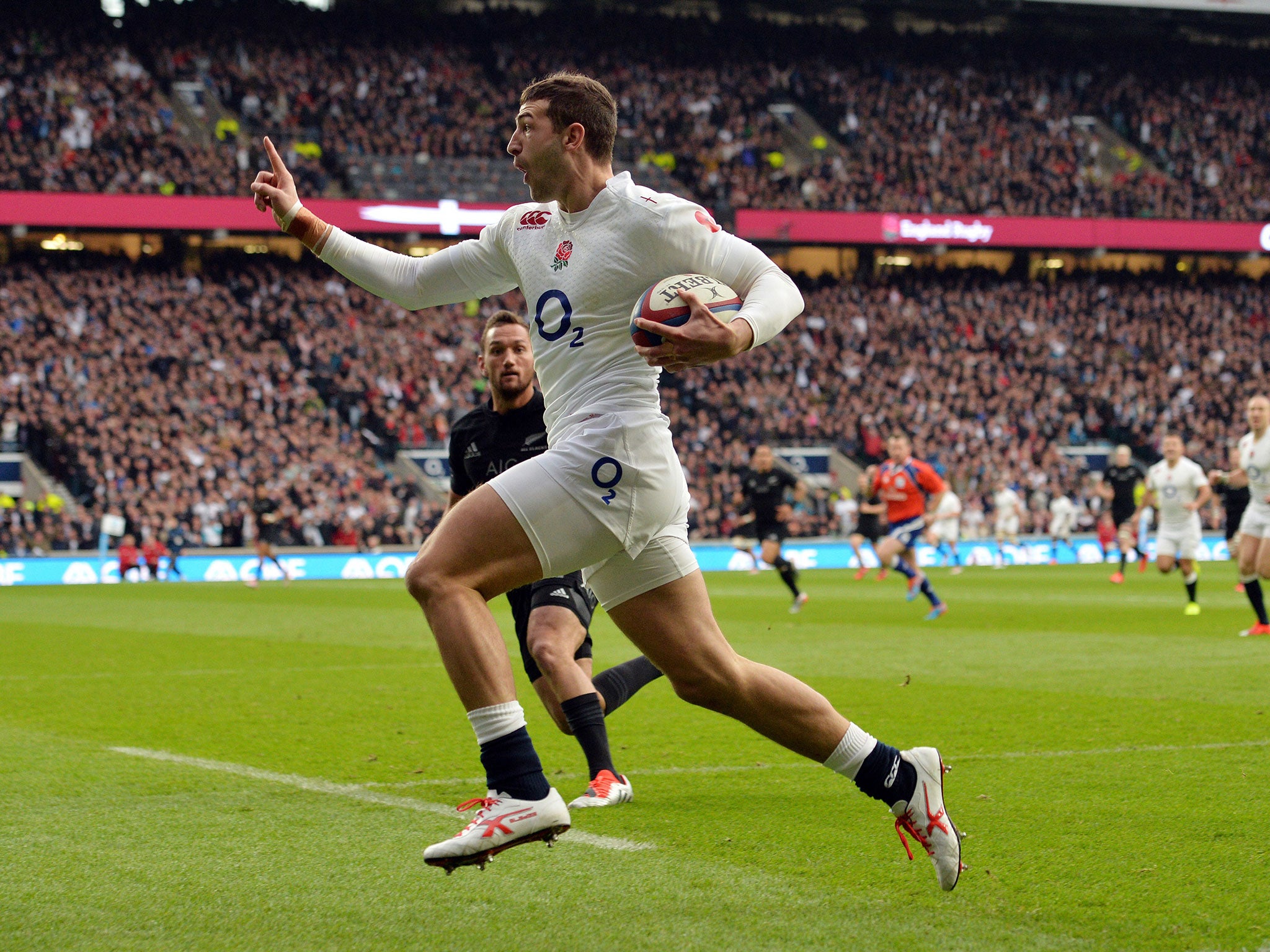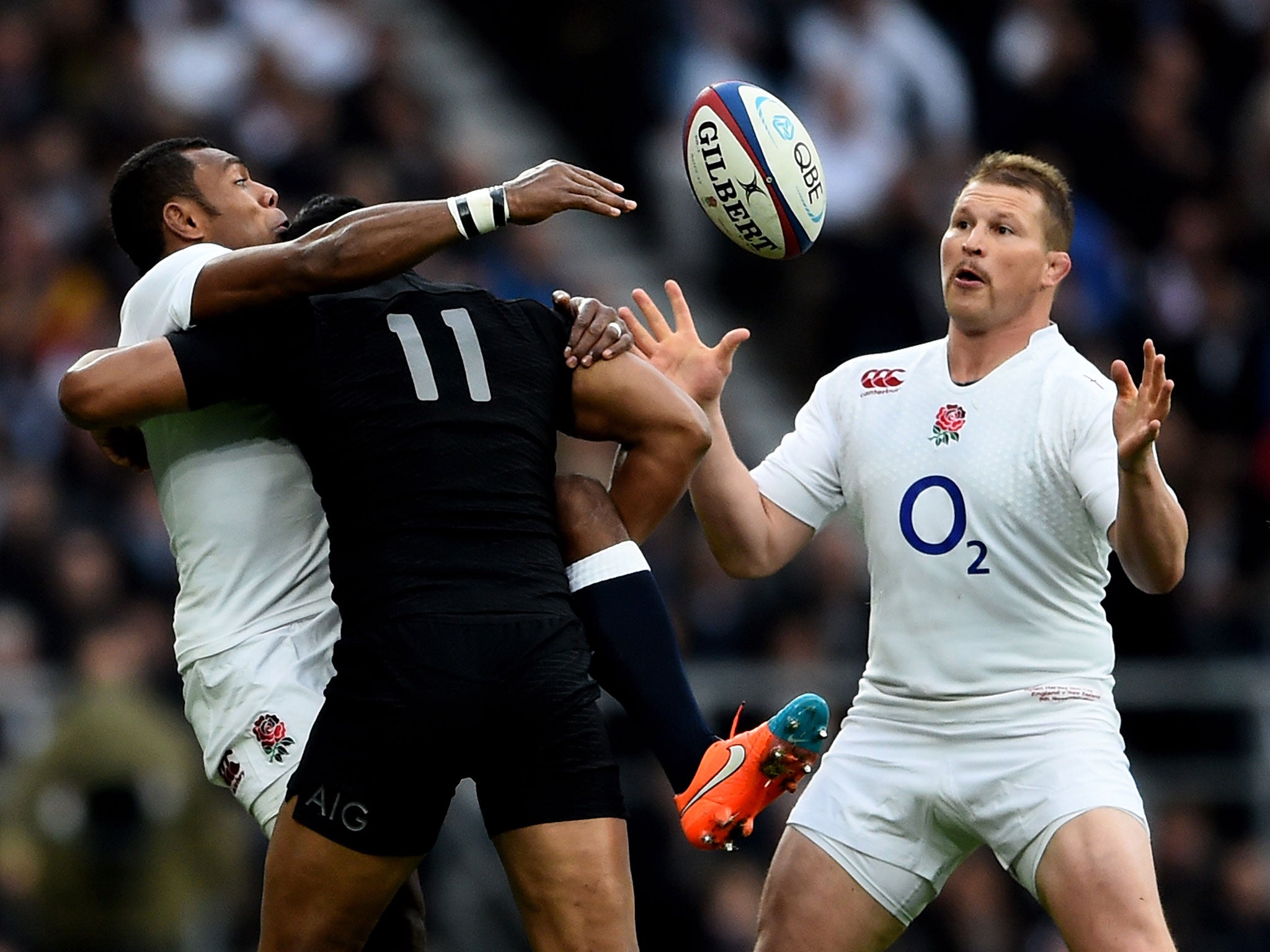England vs New Zealand: England dealt a lesson in how to be streetwise
New Zealand had to dig deep but ultimately squeezed the life out of an England side lacking the Kiwis’ collective will

Your support helps us to tell the story
From reproductive rights to climate change to Big Tech, The Independent is on the ground when the story is developing. Whether it's investigating the financials of Elon Musk's pro-Trump PAC or producing our latest documentary, 'The A Word', which shines a light on the American women fighting for reproductive rights, we know how important it is to parse out the facts from the messaging.
At such a critical moment in US history, we need reporters on the ground. Your donation allows us to keep sending journalists to speak to both sides of the story.
The Independent is trusted by Americans across the entire political spectrum. And unlike many other quality news outlets, we choose not to lock Americans out of our reporting and analysis with paywalls. We believe quality journalism should be available to everyone, paid for by those who can afford it.
Your support makes all the difference.The rain, given a silver sheen by Twickenham’s state-of-the-art lighting system, lashed down. It was time for the All Blacks to get down and dirty. Reduced to 14 men, they refused to recoil, and applied the sort of pressure which punishes bodies and scrambles brains.
They did what world champions do, imposed their collective will and found a way to win. They used adversity as an ally, and cherished the challenge to their authority. Their fifth successive victory over England was a strident statement of intent.
When the All Blacks return to the old cabbage patch next autumn, their defence of the World Cup will be underway. England’s fractured squad will have another season’s experience before they carry an expectant nation on broad shoulders, and must pray that the attritional nature of international rugby does not further deplete them.
Sport these days can be articulated statistically, but no numbers have greater relevance than the contrasting totals of caps won by yesterday’s squads: the All Blacks had made 1,023 collective appearances compared to England’s 437.
They ran like cheetahs when permitted, but had the survival instincts of cockroaches when it mattered. They were as streetwise as a mugger lingering in the shadows, yet were as accomplished as a master craftsman, seeking perfection in the privacy of his workshop.
Nothing is taken for granted. Their natural resilience was, as ever, embodied by the game’s definitive character, their captain Richie McCaw. He retains the underdog’s hunger after 135 Test matches, spread over 14 uniquely punishing years.
His legend is secure, having won the last World Cup on a broken foot. His legacy seems similarly assured. When he looked around, after hooker Dane Coles had been sent to the sin bin, he saw “the excitement in the boys’ eyes. They had an extra bounce. It’s just flicking a switch”.
If imitation really is the most sincere form of flattery, the All Blacks are in a position to bathe in the warm glow of peer recognition. The problem, for their rivals, is they view such fripperies as utterly irrelevant. They are all about the ruthless imposition of accustomed superiority.
They needed no mascots, choral chariots or balls of fire to embellish their introduction. They were there for business, even if the sacred symbolism of the haka was eroded by an emboldened record crowd, which bellowed England’s misappropriated spiritual anthem, Swing Low, in a populist gesture of defiance.
It was all a bit Disneyland, and the disrespect was guaranteed to needle the visitors. The irony, that England are making a conscious attempt to place lessons from the world champions into an emerging culture, was lost on them, but the impertinence will not be forgotten.
Lancaster has empowered leadership groups in his squad, to induct newcomers. He has encouraged All Black gestures of humility, such as senior players sweeping the dressing-rooms. Perspective is all. Debutant Semesa Rokoduguni derived his from his first week in active service in Afghanistan, when a marine he accompanied on patrol stepped on a mine and lost his legs.

These are not England footballers, media-trained and pre-programmed to recycle banalities and emit empty rallying cries. They are grown-up athletes, trusted to articulate their ambition and put sport into a deeper, more emotionally intelligent context. They work in a mature environment, in which team-mates can discuss the emotional impact of becoming new fathers, and translate the overwhelming sense of responsibility and privilege they feel into their performance.
Twickenham’s £70 million makeover has given them an appropriate stage, but the culture of marginal gains can take them only so far if the basics are not applied with consistency of purpose.
These are the matches in which proverbs come to life. The Maori saying “a little water seeping through a small hole may swamp a canoe” embodies the importance of the All Blacks’ unthinking unity and attention to detail.
We dwell, understandably enough, on the gladiatorial, the physical. Yet Test matches involve the application of mental strength. Clarity of thought is critical; decision making when the body is protesting and the brain is racing must be sharp and unerring.
England had started spectacularly through Jonny May’s try, a fusion of instinct, incision and adventure which saw him speed down the left-hand touchline and outside of the covering defender Israel Dagg.

Of course, through the prism of the All Blacks’ aura, May’s moment of ultimate fulfilment looked a little different. “He won’t get too many softer tries,” their coach Steve Hansen observed. For good measure he dismissed the theory of psychological advantage as “baloney”.
The sight of England coach Stuart Lancaster with both hands clasped to his head soon afterwards, after Mike Brown spilled what seemed sure to be a scoring pass following sustained pressure on the visitors’ line, was symbolic of a significantly squandered opportunity.
England duly had the life squeezed out of them by a bunch of human anacondas. Now they face the Springboks, who found a way to beat the All Blacks. “We’re not far away,” Lancaster insisted, but as the world peered through the curtain of rain, the gap seemed to stretch to infinity and beyond.
Join our commenting forum
Join thought-provoking conversations, follow other Independent readers and see their replies
Comments